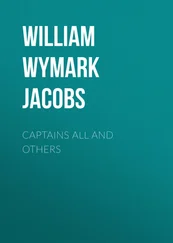John Abbott - Captain William Kidd and Others of the Buccaneers
Здесь есть возможность читать онлайн «John Abbott - Captain William Kidd and Others of the Buccaneers» — ознакомительный отрывок электронной книги совершенно бесплатно, а после прочтения отрывка купить полную версию. В некоторых случаях можно слушать аудио, скачать через торрент в формате fb2 и присутствует краткое содержание. Жанр: foreign_antique, foreign_prose, на английском языке. Описание произведения, (предисловие) а так же отзывы посетителей доступны на портале библиотеки ЛибКат.
- Название:Captain William Kidd and Others of the Buccaneers
- Автор:
- Жанр:
- Год:неизвестен
- ISBN:нет данных
- Рейтинг книги:5 / 5. Голосов: 1
-
Избранное:Добавить в избранное
- Отзывы:
-
Ваша оценка:
- 100
- 1
- 2
- 3
- 4
- 5
Captain William Kidd and Others of the Buccaneers: краткое содержание, описание и аннотация
Предлагаем к чтению аннотацию, описание, краткое содержание или предисловие (зависит от того, что написал сам автор книги «Captain William Kidd and Others of the Buccaneers»). Если вы не нашли необходимую информацию о книге — напишите в комментариях, мы постараемся отыскать её.
Captain William Kidd and Others of the Buccaneers — читать онлайн ознакомительный отрывок
Ниже представлен текст книги, разбитый по страницам. Система сохранения места последней прочитанной страницы, позволяет с удобством читать онлайн бесплатно книгу «Captain William Kidd and Others of the Buccaneers», без необходимости каждый раз заново искать на чём Вы остановились. Поставьте закладку, и сможете в любой момент перейти на страницу, на которой закончили чтение.
Интервал:
Закладка:
As Kidd did not seem disposed to unbosom himself very freely, and as the earl feared that some stormy night he might escape, he decided to hold him secure in prison. This led to his arrest, which we have already alluded to, on the sixth day after his arrival. The arrest took place in the streets of Boston, near the door of the earl’s residence. At the same time some commissioners took possession of his sloop. They seized and examined all his papers, and placed a guard over the property. Quite a number of his men were also arrested, twelve in all, under charge of piracy and robbery on the high seas. It is supposed that the others escaped.
On the seventeenth of July, Captain Nicholas Evertse arrived in Boston, with the statement to which we have referred, that Bolton, who was left in charge of the Quedagh Merchant, had transferred her cargo to another vessel, conveyed the goods to Curacoa, and set the Merchant on fire. He testified that he saw the flames of the burning ship as he was skirting the coast of San Domingo.
Kidd and his confederate pirates were held in close custody in Boston for several months. In the mean time intelligence of their capture was sent to London. The home government dispatched a ship of war to take them to England for trial. The excitement throughout Great Britain and in this country was intense, in consequence of the rumor which had so extensively prevailed of Kidd’s partnership with the king and several of the ministry. Many months had already elapsed since his arrest, and yet he had not been brought to trial. The ship sent to transport him to London encountered a severe storm and put back. This caused an additional delay, and increased the excitement. It was said that the ministry, out of regard to their own reputation, were determined not to bring him to justice. Thus, throughout all England, he ceased to be regarded as an ordinary pirate, and was raised to the dignity of one entitled to a state trial.
Immediately upon Kidd’s arrival, the House of Commons addressed a petition to the king, praying to have his trial postponed until the next Parliament. The question of his guilt or innocence had become so involved in political issues, that there was a strong party ready to make the greatest exertions to secure his condemnation. They urged the postponement on the ground that this length of time was requisite to obtain, from the Indies, documents and affidavits in reference to his transactions. Kidd and his companions were consequently confined in Newgate prison for a whole year.
At that very time the House of Commons had impeached the Earl of Oxford and Lord Somers, for their connection with Kidd, and for the extraordinary commission which they had been instrumental in placing in his hands. It was said that commission and grants had been conferred upon him, which were highly prejudicial to the interests of trade and dishonorable to the king. In accordance with this commission, Kidd could capture any ship, and, without referring the question to any court of inquiry, could, of his own pleasure, declare the ship to be a pirate. He could then confiscate ship and cargo to his own use, and dispose of the crew in any way which to him might seem best. This was the course which, under the commission, he did pursue.
These were certainly very extraordinary powers. It was contended that they were contrary to the law of England and to the Bill of Rights. To these arguments it was replied, by the friends of the impeached nobles, that pirates were the enemies of the human race; that as such any person had a right to destroy them, and seize the property they had so iniquitously acquired, and to which they had no legitimate title. It was also declared, though perhaps the royal commission would hardly sustain the statement, that Kidd was authorized to seize only that property for which no other owner could be found. Certainly there was no provision made for searching out such ownership. It was, however, urged, and very truthfully, that the commission contained the all-important clause:
“We do also require you to bring, or cause to be brought, such pirates, freebooters, or sea-rovers, as you shall seize, to legal trial, to the end they may be proceeded against according to the law in such cases.”
The fact that Kidd entirely ignored these instructions, constituting himself the court to try and condemn, could not justly be brought as a charge against the ministers who commissioned him.
Upon these questions popular feeling ran high. Parties took sides. Agitating rumors filled the air. It was confidently affirmed that the lords then on trial, with the connivance of the ministry, that they might escape the investigation which the trial of Kidd would involve, had set the Great Seal of England to the pardon of the pirate. This roused the anti-ministerial party to the highest state of exasperation. They resolved at all events to hang Kidd, hoping thus to prove that the ministers were alike guilty with him. And on the other hand, the ministers themselves had come to the conclusion that any attempt to shield Kidd would redound to their own ruin. It had become essential to their own reputation that they should manifest more zeal than any others to bring Kidd to the scaffold.
Thus the wretched pirate had no chance of a fair trial. Undoubtedly he was guilty. But it is very doubtful whether he were proved to be guilty when called before the court. The bill of impeachment against the lords was not carried. Though their participation with Kidd in the profits of an expedition which was authorized only by their own official acts was deemed very censurable, when the vote was taken there were but twenty-three in favor of the impeachment, while there were fifty-six opposed to the bill.
The Earl of Bellomont, harassed by the procedure in the House of Commons, and knowing that measures were about to be instituted against him for his recall from the provincial government, and perhaps for his still more severe punishment, was taken sick and died in New York, in March, 1700. Thus he escaped from the further troubles of this ever-troubled world.
At the close of the year 1700, the papers which had been sent for arrived from the East Indies. A petition came from several of the East-Indian merchants, subjects of the King of Persia, giving a minute recital of the capture of the Quedagh Merchant, and praying that the property of which they had thus been robbed, and much of which had been conveyed to the North American colonies, might be restored to them. A very distinguished East Indian, by the name of Cogi Baba, came to London in behalf of the petitioners. He was summoned to appear before the House of Commons. At the same time Kidd himself was brought from his prison before the bar.
After an examination, a motion was made to the House to declare the grant made to the Earl of Bellomont and others of the company, of all the treasure taken by Kidd, to be null and void. But this motion was negatived. A vote was then taken requesting the king to institute immediate proceedings against Captain Kidd for piracy and murder. He was accordingly brought to trial, under this indictment, at the Old Bailey, in the year 1701.
Several of Kidd’s confederates were tried with him. Some of them pleaded the king’s pardon, saying that they had surrendered themselves within the time limited in the royal proclamation. The governor of New Jersey, Colonel Bass, then in court, testified to the truth of this assertion, the surrender having been made to him.
To this it was replied, “There were four commissioners named in the proclamation, Thomas Warren, Israel Hayes, Peter Delanoye, and Christopher Pollard. These commissioners were sent to America to receive the submission of such pirates as should surrender. No other persons were entitled, to receive their surrender. They therefore have not complied with the conditions of the proclamation.”
Читать дальшеИнтервал:
Закладка:
Похожие книги на «Captain William Kidd and Others of the Buccaneers»
Представляем Вашему вниманию похожие книги на «Captain William Kidd and Others of the Buccaneers» списком для выбора. Мы отобрали схожую по названию и смыслу литературу в надежде предоставить читателям больше вариантов отыскать новые, интересные, ещё непрочитанные произведения.
Обсуждение, отзывы о книге «Captain William Kidd and Others of the Buccaneers» и просто собственные мнения читателей. Оставьте ваши комментарии, напишите, что Вы думаете о произведении, его смысле или главных героях. Укажите что конкретно понравилось, а что нет, и почему Вы так считаете.












